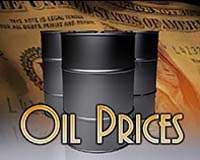 |
Port Harcourt, Nigeria (UPI) Mar 25, 2011 Royal Dutch Shell and possibly other Western companies are planning to sell off some of their licenses in Nigeria's all-important oil industry amid expectations of political violence ahead of national elections April 9. Shell, which has operated in Nigeria for decades, wants to shed four declining onshore concession blocks in the trouble-torn Niger Delta in the south. At least 18 companies have tendered bids that go as high as $600 million, the online Paris's Africa Energy Intelligence newsletter states. It says other major Western concerns are also considering putting some fields up for sale before the end of the year. But these moves don't stem only from concerns of violence ahead. Shell and other foreign oil giants, such as Total of France and ENI of Italy, have long clashed with the Oil Ministry and other state bodies over the way the oil industry is run in Africa's most populous nation. In recent years, the government has been pressing for greater control over the industry and has been pushing the foreign companies to pay more taxes. The companies have resisted strongly and moved to sell off drilling blocks that were past their prime. But the confrontation also stems from decades of insurgency, political crises and rampant corruption that have battered Nigeria's oil industry, once considered the largest in Africa. Before a mid-2010 cease-fire in an insurgency in the Niger Delta, the violence that erupted in 2005 had slashed Nigeria's oil production by 40 percent to around 2 million barrels per day. The industry has made up some of that since then but the recovery is likely to be shattered as the cease-fire unravels and election time nears. The insurgents, many linked to political barons who have milked the oil industry for years, are expected to step up their depredations as the elections approach, as is the way during electoral campaigns. "The stakes are high," the International Crisis Group observed in a February pre-election analysis. "The state is the principal means of generating wealth; vast oil revenues are accessed through public office." By some estimates, more than $300 billion in state funds, mainly from oil exports, have been plundered by corrupt officials and politicians over the last decade, with no one ever taken to court. The elections are taking place against a worrying surge in violence. This includes repeated Christian-Muslim massacres in the central region of a country whose 150 million population is roughly divided equally between the Christian south, where the oil is, and the Muslim north, and bombings linked to the southern oil fields insurgency. "Politicians and their sponsors habitually exploit violent groups and social divisions to win elections," the ICG observed. "A number of incumbent governors face bruising contests and the threat of bloodshed hangs over many states," particularly in the oil-rich south. The Financial Times noted in January that over the last four years more than $30 billion has vanished from the Excess Crude Account, into which windfall revenue is fed when oil prices are high. It said officials and analysts estimated that $7 billion of that had flowed out of the ECA in 2010. "The way Nigeria manages windfall revenues when oil prices soar has been a continuous source of friction and intrigue since the days of military rule" that end in 1999, the Financial Times observed. With little oversight, "the problem is no one in government has been either willing or able to put a finger on exactly how much has gone in and out of the account, now close to empty and how exactly it has been spent." U.S. diplomatic cables released by WikiLeaks in December reveal that Nigerian security forces are ineffective in countering attacks on oil installations in the delta and are often involved in dubious oil deals themselves. The documents filed by the U.S. Embassy in Abuja, Nigeria's administrative capital, also indicate that government officials demand millions of dollars in kickbacks. One cable dated March 2009, said, "Shell and Total recently revealed they were forced to loan their Nigerian partners billions of dollars at well below market rates to support ongoing joint venture operations." Another oil company alleged that high-ranking Nigerian officials demanded millions in bribes for rights to load tankers.
Share This Article With Planet Earth
Related Links Powering The World in the 21st Century at Energy-Daily.com
 Oil prices firm on Middle East unrest
Oil prices firm on Middle East unrestLondon (AFP) March 24, 2011 World oil prices crept higher on Thursday as as traders eyed further unrest in the Middle East and North Africa and kept an eye on Portugal's debt crisis. Brent North Sea crude for delivery in May inched up six cents to $115.61 a barrel in late afternoon London deals. New York's main contract, light sweet crude for May, known as West Texas Intermediate, rose 12 cents to $105.87. Oil ... read more |
|
| The content herein, unless otherwise known to be public domain, are Copyright 1995-2010 - SpaceDaily. AFP and UPI Wire Stories are copyright Agence France-Presse and United Press International. ESA Portal Reports are copyright European Space Agency. All NASA sourced material is public domain. Additional copyrights may apply in whole or part to other bona fide parties. Advertising does not imply endorsement,agreement or approval of any opinions, statements or information provided by SpaceDaily on any Web page published or hosted by SpaceDaily. Privacy Statement |